Bangladesh: Community health worker Fatema
Fatema is a refugee herself and accompanies women in the refugee camp through their pregnancy.
Read more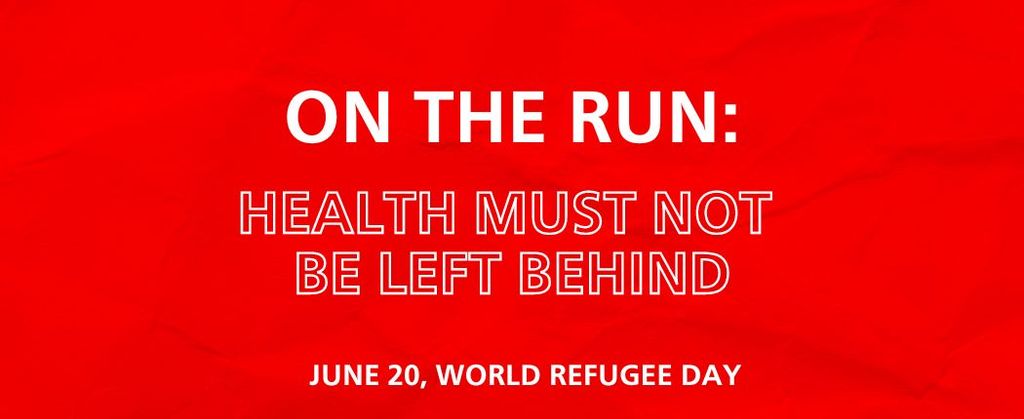
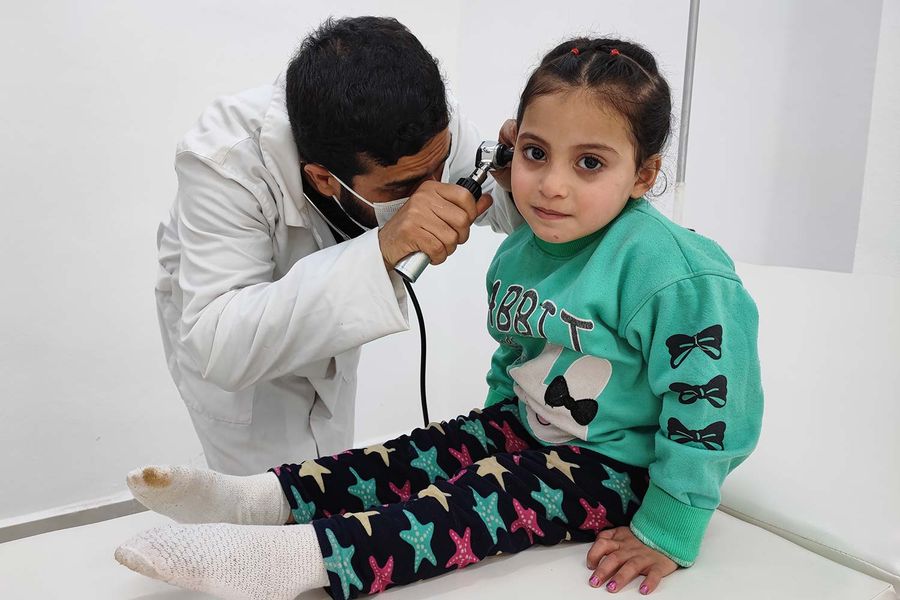
Countless people around the world are forced to flee their homes and seek refuge due to conflict, persecution, and natural disasters. Involuntarily and too often, in such dire circumstances, accessing proper healthcare and respect for human dignity are also left behind.
According to the latest figures of the UN Refugee Agency (UNHCR), some 123.2 million people were on the run in 2024. This is the highest number recorded. Around 73.5 million people, which makes up the majority, are refugees within their own country. There is no end in sight to the refugee movement - on the contrary: experts expect the number of people needing to flee to continue to rise in the coming years.
Displaced individuals remain among the most vulnerable members of society and their health needs are often neglected. Many of them undertake long, exhausting journeys with inadequate access to food and water, sanitation, and other basic services, increasing their risk of getting sick. Crowded living conditions in refugee camps also contribute to the spread of communicable diseases. When people are on the run, it is especially maternal and child health that suffers due to limited access to specialized care. In addition, malnutrition is prevalent among the displaced, particularly children, because of food insecurity and inadequate nutrition. However, flight not only affects physical health, but also mental health and well-being as refugees frequently experience trauma, depression, and anxiety.
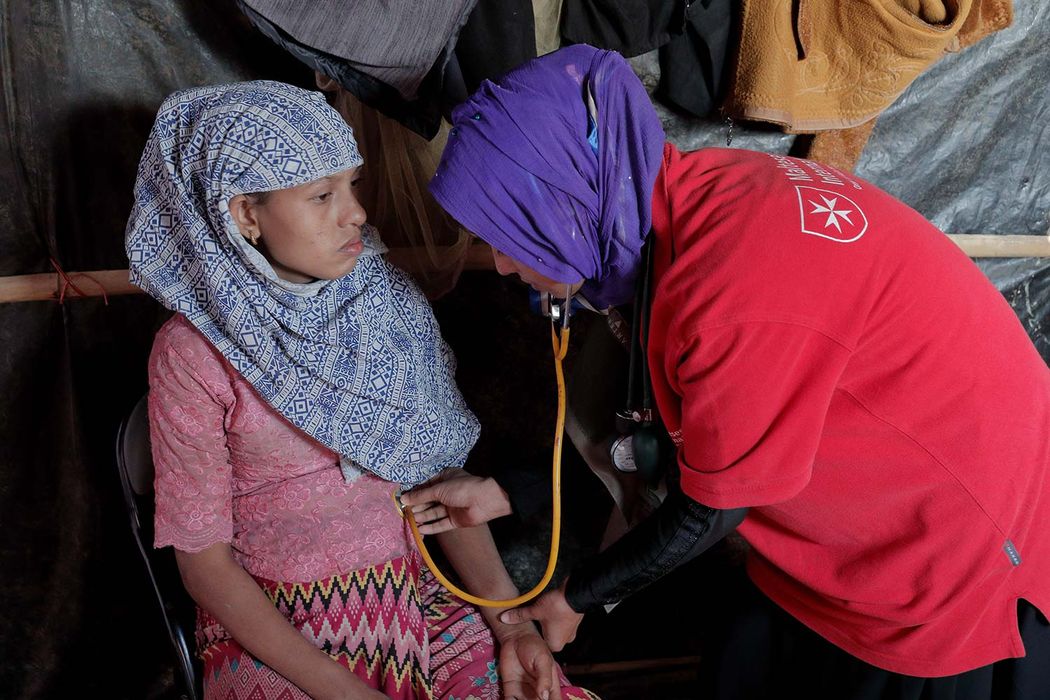
The largest refugee camp of the world is in Cox's Bazar in the South of Bangladesh and home to about one million people - mainly members of the persecuted Rohingya. They are living in crowded makeshift shelters made of bamboo and tarpaulin under the most difficult living conditions and without any prospect of returning to their home country Myanmar in the near future. Together with our partner organization GK, we stand by these people and ensure their right to basic medical care. In three health centers operated by us, refugees as well as vulnerable Bangladeshi communities can receive free treatment. In addition to basic care and psychosocial counseling, we focus on providing expectant mothers with the best possible support during pregnancy and birth. For example, we train refugees to become midwives who take care of mothers-to-be and make sure they attend both pre-natal and post-natal check-ups. In addition, they provide important health information and work tirelessly to offer advice and support to their patients. More about out health project in Bangladesh.
Despite being one of the world's largest oil producers and one of Africa's largest economies, an extremely large number of Nigerians live in poverty and are dependent on aid. In addition, the north-east of Nigeria is also suffering from the conflict with the Islamist terrorist militia Boko Haram, forcing countless people to leave their home. Attacks, suicide bombings, kidnappings and gender-based violence has become part of everyday life. In order to seek safety, people are fleeing to camps secured by the military. But these camps are completely overcrowded. Malteser International has been working in Nigeria since 2017 to enable health and dignity for displaced people and host communities. We build wells, water systems and toilets, and thus help to mitigate diseases such as cholera, which are caused by contaminated water. We also run several houses where girls and women, who have experienced gender-based violence such as forced marriage, psychological or sexual abuse, can find shelter and access psychosocial care. Moreover, we offer them special trainings to become self-sufficient. Learn more about our work in Nigeria.
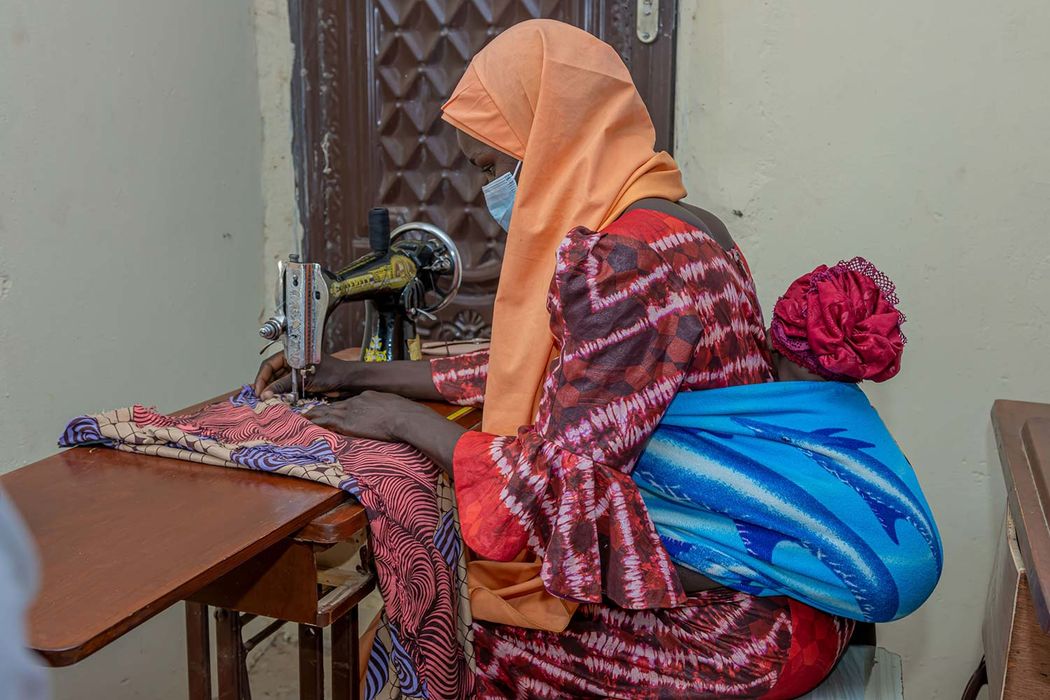
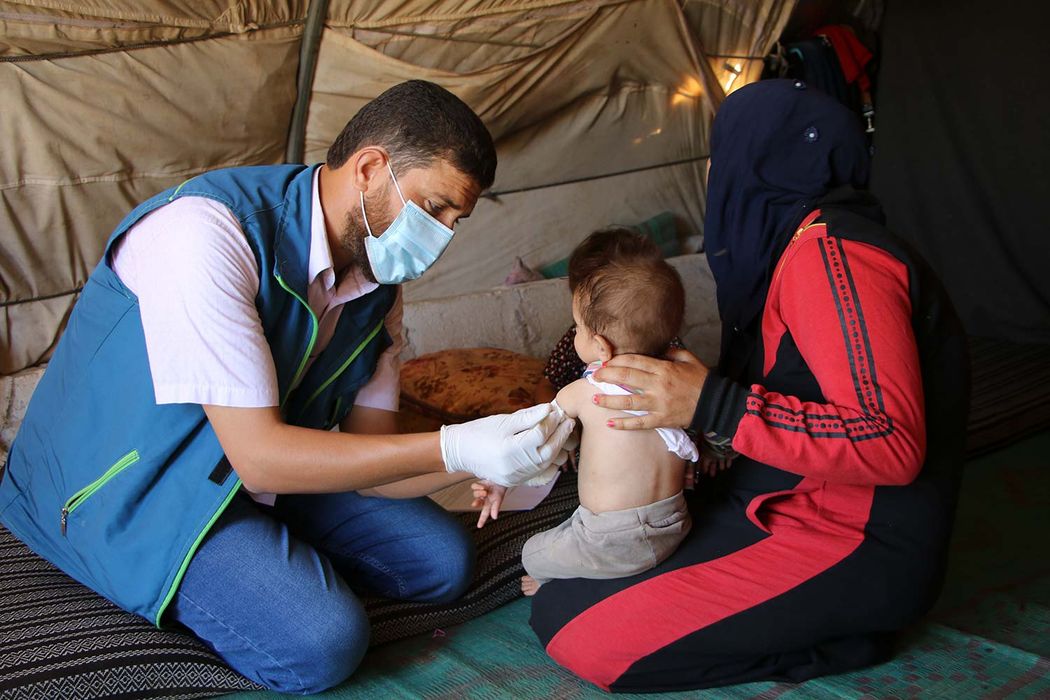
Even after twelve years of civil war, the people in northwestern Syria cannot find peace. 2.9 million internally displaced persons live in the region - many of which are housed in temporary refugee camps. The situation for the people was already extremely dire before the severe earthquake in February 2023, and providing them with basic necessities has now become even more difficult. More than 80% of the people living in the region are dependent on humanitarian aid. Hunger and malnutrition are a major problem, with around 3.3 million people considered "food insecure". Together with our local partner organizations in Syria, we are helping to alleviate some of the greatest needs by distributing food packages to particularly vulnerable families. In addition, pregnant women, nursing mothers and children under the age of five receive supplementary food. We also support farmers in growing vegetables, create income opportunities for women helping with the harvest, and distribute tools for processing the vegetables. Moreover, we provide medical care for people in northwestern Syria, ensuring access to primary and secondary health care, essential medicines, and gynecological and obstetric services. More about our health projects for refugees in Syria.
Since the beginning of the nationwide Russian invasion of Ukraine in February 2022, one-third of the Ukrainian population has been forced to flee. Some 5.3 million people have fled within the country - over 8.1 million people have found refuge in neighboring countries (source: UN, as of March 2023). The effects of the still ongoing war are devastating, leaving both visible and invisible scars. Millions of people are suffering from the consequences of this continuing crisis. Many who have had to flee or live in occupied areas are traumatized by the horrific events they have and continue to endure. They have lost family members and friends, live in constant fear, and were forced to leave their homes behind. These are stressful and traumatic experiences that require time and professional support to process. In cooperation with our partner Malteser Ukraine, we have been offering psychosocial support services for those suffering from the conflict in Ukraine since 2015 and have continued to expand these services since the beginning of the nationwide invasion. With psychosocial services such as group or individual sessions with psychologists and special offers for children, it is our concern to support the people in Ukraine and to accompany them to the best of our ability on their journey to heal invisible wounds. More information about our mental health project in Ukraine.
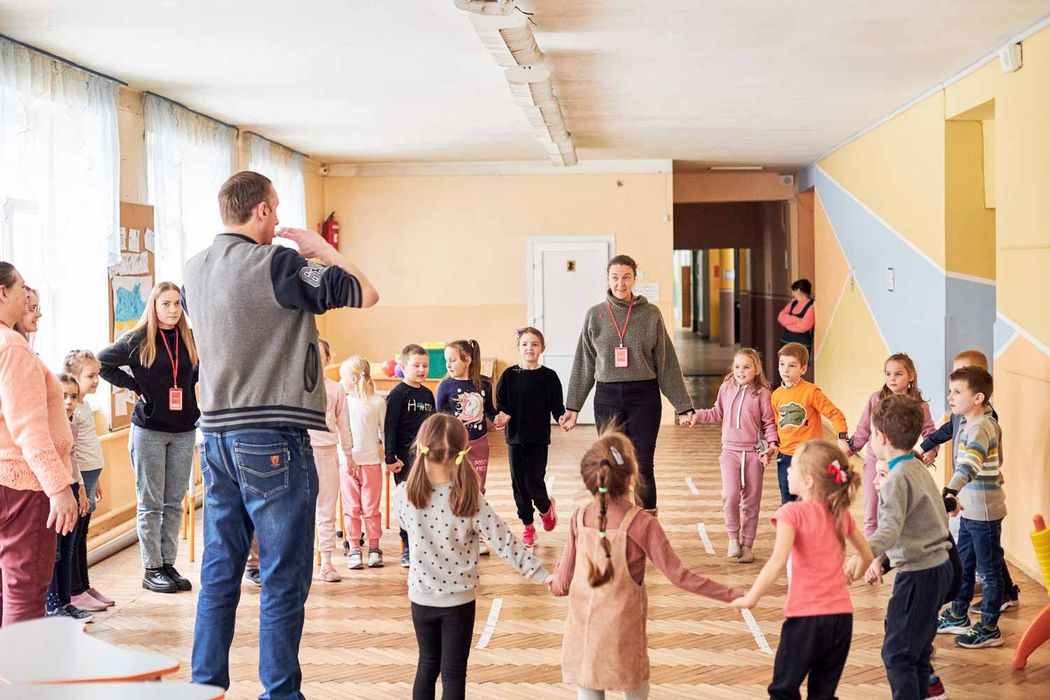
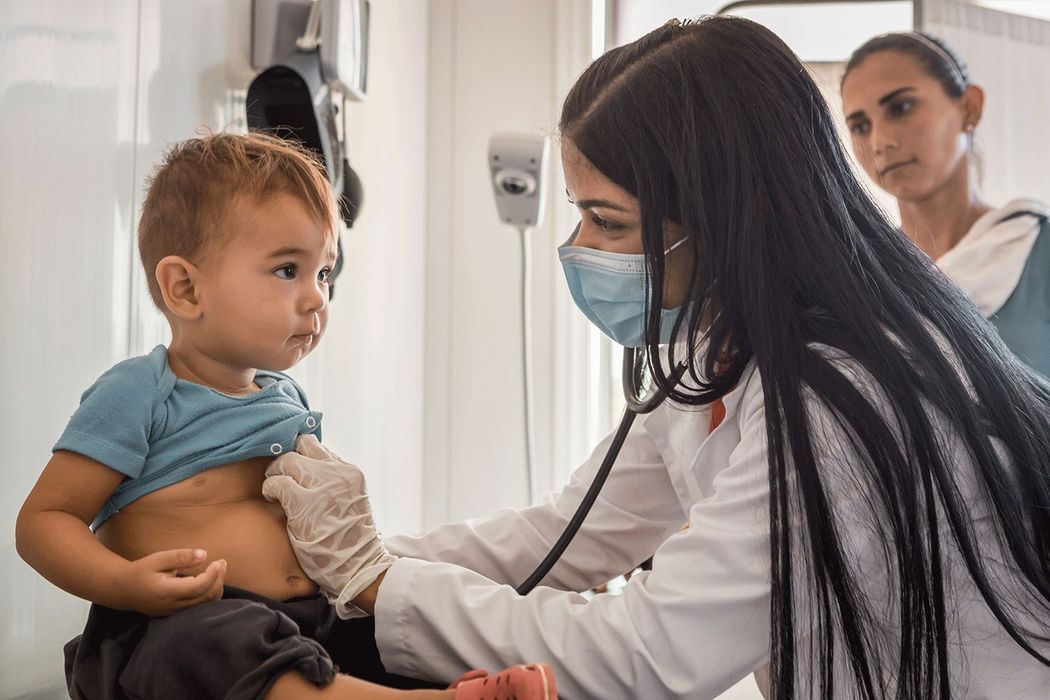
The continuous exodus of millions of Venezuelans is the largest recorded refugee crisis in the Americas, with 7.1 million Venezuelans migrating since 2015. More than one quarter of Venezuelans leaving their country seek refuge in neighboring Colombia. The sheer number of Venezuelans has overwhelmed the country’s healthcare system, making it difficult for refugees to receive the necessary healthcare they require. To bridge critical gaps and reduce barriers in access to health, we provide primary care for general and specialized medicine for Venezuelans, as well as marginalized host communities through the strengthening of national health actors. We reach people living in vast and remote areas through mobile medical clinics – for many the only source of health care. In addition to psychosocial support and psychiatric care, we also focus on maternal and child health, ensuring that expecting mothers and children receive regular medical check-ups. Vulnerable children are particularly affected by malnutrition, which is why we distribute food kits and nutritional supplements to manage a quick recovery. Get to know more about our projects in Colombia.
Fatema is a refugee herself and accompanies women in the refugee camp through their pregnancy.
Read moreDeilis came to Colombia with her family from Venezuela. Life is not easy here for the family. Deilis was diagnosed with malnutrition.
Read moreMaria had to flee from the Russian occupation and find refuge in Lviv, where she receives psychosocial support from Malteser Ukraine.
Read moreIn Nigeria, we provide safe spaces for women and girls affected by violence. Yakaka is one of them.
Read more10-year-old Ahmed works at a motorcycle maintenance shop near his refugee camp to secure a living.
Read more